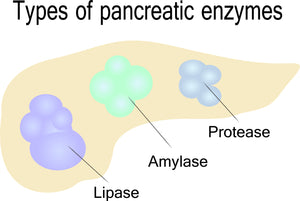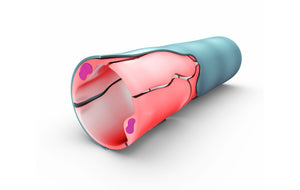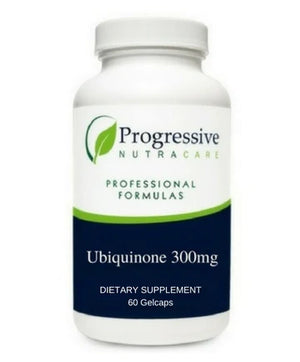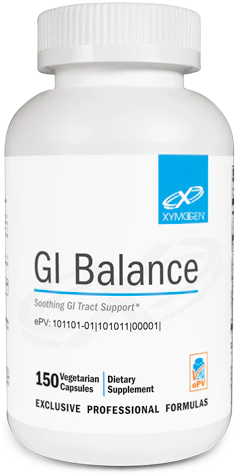Oxidative stress and inflammation, and why it happens.

Oxidative Stress is a hot topic in health circles, and for good reason. Doctors and patients alike have come to realize that so much of what can make you feel off revolves around inflammation. There are still some old-school diehards that will be quick to tell you that inflammation is necessary, that it's a natural part of the immune response, and that without it we wouldn’t heal. While this is true, it misses the point. While an inflammatory response is indeed an immune response that indicates that the body’s immune system is working, the inflammation itself can be damaging to the body, and chronic inflammation is not a normal immune response, but a sign that the immune system is confused, the body is under stress, and possibly even attacking itself (an autoimmune disease). In fact, the best of all possible health outcomes is one in which there is low inflammation but a fully functioning immune system, and one of the worst is one where there is high inflammation and a faulty immune system- either one which is overactive and attacks its own cells or one which is underactive and inefficient and produces prolonged inflammation.
Inflammation is damaging to the body, and chronic inflammation is even more so. What’s more, inflammation in one part of the body can cause inflammation elsewhere in the body, even throughout. Inflammation in the gut can cause an inflammatory response in the brain. Inflammation in the muscles can cause cardiac inflammation. How? Inflammatory response is a reaction to a perceived foreign pathogen. Repeated exposure to toxins, allergens, bacteria, viruses, antibiotics, and other substances can stress cells and confuse the immune system leading it to attack the body’s own cells. This process can cause chronic inflammation and is the process whereby autoimmune conditions are developed. Chronic inflammation puts a strain on every organ in the body and increases the risk for many poor outcomes- cardiac events, stroke, cancer, diabetes, and other metabolic diseases. In addition, chronic inflammation can leave you feeling perpetually run-down, tired all of the time, with pervasive brain fog, and an inability to concentrate.
In order to address the risk of chronic inflammation, it’s helpful to know a bit more about the process. The reason that immune confusion happens and autoimmune diseases progress is that the body is in a constant state of inflammation. When behaving normally, the immune system sends white blood cells (leukocytes and macrophages) to the site of the invasion. These cells respond in different ways, inflammation occurs in response, and cell death from macrophage-eating cells is partly responsible both for the inflammation and for purging the body of infection. When this happens over and over, the immune system can get confused and begin attacking healthy cells, causing a chronic state of inflammation. Another inflammation pathway is cellular damage resulting from toxins, pollutants, radiation, and other sources of oxidative stress. These substances trigger ROS (reactive oxygen species) in the cell to degrade the cell reacting with it via oxidation- stealing an electron. Oxygen has two pairs of electrons that are continually searching for a partner, thus making it a very potent and highly reactive free radical by nature. ROS is a free radical, and free radicals bind with just about anything within the body with an electron and change their chemical structure, sometimes damaging them by stealing the electron. This process of oxidation by free radicals is what’s known as oxidative stress and can result in impairing the function of the cell or even cell death throughout the body.
Strong medical and scientific evidence points to oxidative stress as an underlying contributing factor to heart disease, neurodegenerative conditions, cancers, and toxicity.
Luckily free radicals are countered by the action of antioxidants. Several substances act as antioxidants in the body, but glutathione (GSH) is the most abundant intracellular antioxidant and is critical for defending the cell against oxidative stress. GSH neutralizes free radicals and conjugates toxins for removal from the body, thereby protecting cells from oxidative stress and toxic xenobiotics. Glutathione exists in two forms in the body: oxidized glutathione and reduced glutathione. Total glutathione levels generally include both types, but it’s the reduced glutathione that does the heavy lifting. It is the active form of glutathione and is the primary antioxidant needed to remove damaging free radicals from the brain, liver, and lungs. If the levels of reduced glutathione are low, it is difficult for the mitochondria to make cellular energy. Glutathione has been called a “super antioxidant”, not only because it is so effective at combating oxidative stress, but because it continually recycles itself as well. The problem is that the more free radicals in your cells, the less the glutathione is recycled. When you are in an inflammatory state, your cells are being beset by free radicals, and whether that process is caused by immune confusion or by the action of toxins and other substances causing an acceleration of ROS activity, this means that your antioxidants are not keeping up with the actions of the free radicals. You are out of balance. You need a boost in antioxidants.
This can be done by eating antioxidant-rich foods, eliminating toxins and other harmful substances from your diet and the environment, and supplementation of antioxidants or anti-oxidant-stimulating compounds. While it’s always a sound strategy to eat more antioxidant-rich foods and eliminate toxins from your life, sometimes you may find that difficult or be so inflamed that you need more of a boost than that alone can give you. Several natural ingredients can be found in supplement form that may help. One obvious choice is taking a supplement of glutathione itself. To be effective, you want to make sure it contains the form of glutathione that is active as an antioxidant, reduced glutathione. Essential Pro is a good example of a supplement that contains reduced glutathione.
NAC (N-Acetyl-Cysteine) has been studied as a supplement used to build reserves of glutathione in the body, and it is through this pathway that it exerts an anti-oxidant and anti-inflammatory effect. It has traditionally been used to boost glutathione because glutathione in supplement form can break down quickly unless it is in a liposomal form, as Essential Pro is. A long-term clinical trial being conducted at Stanford is evaluating the efficacy of liposomal glutathione supplementation versus supplementation of NAC:
“Glutathione, when taken orally, is immediately broken down into its constituent amino acids, of which cysteine is the only one to be essential. Available cysteine is the critical determinant of intracellular GSH concentrations. N-acetyl cysteine (NAC) is an antioxidant supplement that has been used to provide a source of cysteine to replete GSH levels. By replenishing endogenous glutathione, it is possible that NAC would exert the same effect(s) as exogenous GSH.
However, there is a new delivery system, liposomal GSH, which keeps glutathione intact. In this study, the investigators propose to match the cysteine content of NAC and GSH and compare the effects of these two supplements, at two different doses, on markers of inflammation and oxidative stress.” (Stanford clinical trial in collaboration with National Center for Complementary and Integrative Health (NCCIH), last updated, last updated February 21, 2023) Not only does this study confirm the delivery system of liposomal glutathione as a superior delivery system, but it offers the hope for excellent data on the use of both NAC and glutathione as supplements for anti-oxidant and anti-inflammatory purposes. Something that makes perfect sense given how they both operate in the body.
- Tags: Article Immune Inflammation
- Robert Thomas







Comments 0